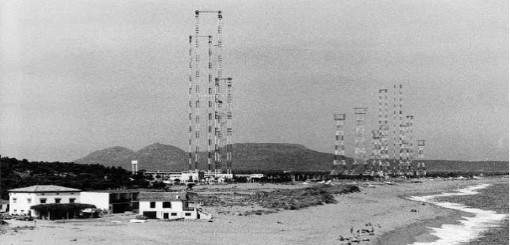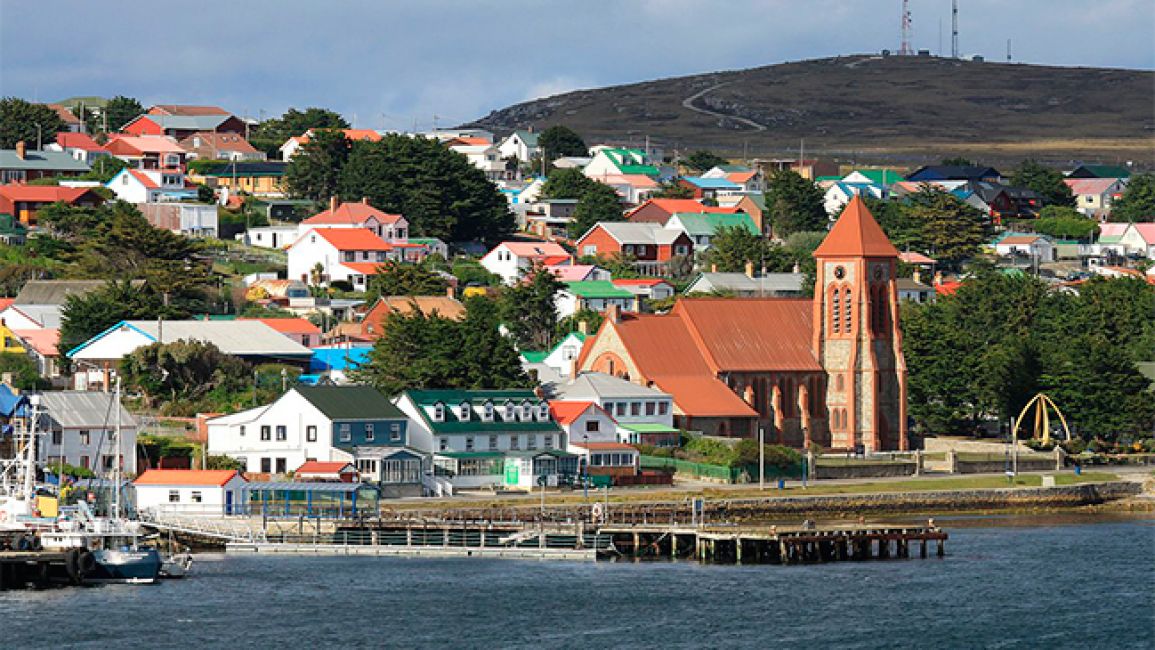In 2020 we celebrate the centenary of radio in Argentina. Such an event can be approached in various ways, since there are several milestones along this century of radio in our cou ntry. There are some events that are marked by fire in collective memory.
ntry. There are some events that are marked by fire in collective memory.
It is our intention to approach the celebration focusing on an event in which radio was in the spotlight: the 1982 Malvinas War, a conflict waged on various fields: military, economic, diplomatic and, of course, communications, mainly as a means of propaganda.
Most countries over time have recognised the great potential of radio as an effective instrument both in times of war and peace. Historically, Germany was the first country to use this for purely political purposes.
During WWII the broadcasts of Radio Tokyo, Radio Germany, the BBC in London and other stations were used for propaganda and military purposes by combatant nations.
The post-war period and the subsequent Cold War brought along a "war of the airwaves". During these years, countless stations emerged with their own propaganda styles, looking to advance their social, political and economic systems.
An example of this are the broadcasts of Radio Moscow, Voice of America or Radio Beijing. Along with these stations, others of a clearly political nature emerged, such as Radio Free Europe and Radio Liberty, that targeted countries in Eastern Europe, as well as nations that became independent after the collapse of the Soviet Union. This group also includes the so-called clandestine stations, which generally broadcast secretly from conflict zones or from nearby regions or using rented transmission sites.
Before April 2, 1982, the Malvinas Islands had one radio station: the Falkland Islands Radio Service (FIBS) - with broadcasts in English. Content aired included locally-produced programs as well as news services of BBC London. It broadcast on 536 khz and 2370 khz.
The AM frequency was intended to cover the Port Stanley area, reaching a little further with SW transmissions.
Radio Argentina al Exterior (RAE) and Radio Noticias Argentinas' English-language broadcasts also targeted the archipelago. There was also a special service of the BBC in London aimed at Malvinas Islanders, also known as “Kelpers”, both on Short Waves.
With regard to TV, television, Channel 9 of Río Gallegos could be picked up on the Islands every now and then.
After Argentine troops seized the archipelago on April 2, 1982, the local radio landscape changed drastically.
The FIBS plant was captured by the Argentine military and its facilities were converted into the studios of the newly-created LRA60 Radio Nacional Islas Malvinas that joined the national network of Radio Nacional.
This station was manned by several Argentines: including sound engineer Ernesto Manuel Dalmau, operator Fernando Héctor Péndola and presenter Norman Carlos Powell.
During the war, FIBS presenter Patrick Watts continued to be a speaker as the new authorities thought it was a good idea to take advantage of his knowledge of the local environment and his fluent command of the English language as spoken in Malvinas. This proved later to have been a gross miscalculation by the Armed Forces since he covertly provided valuable military and strategic information to the British, such as, saying on the air that the airport remained operational despite British bombardment.

During the War and until it ended, LRA60 Islas Malvinas transmitted programs via a cable system in Puerto Argentino -as Stanley was renamed by the military authorities- in addition to 536 kHz on the Medium Wave and on 2370 on the SW.
Programs were also retransmitted on other SW frequencies that were used as a relay in the mainland and in this way its programming was received and retransmitted by other Argentine stations.
On several occasions LRA60 was the head for the entire network of stations integrating the now defunct National Broadcasting Service.
The frequencies used as relays were 15890 KHz and 24146 KHz and corresponded to the VPC radio station installed by Cable & Wireless Co. which operated in a single sideband (USB) and which the islands used to link with the UK in point-to-point communications, up until the outbreak of the conflict.
LRA60's programming was very varied and included music in English and Spanish, sports broadcasts picked up directly from the BBC, and community announcements for rural as well as city dwellers.
Regular broadcasts for the rural population in estancias and farms across the archipelago continued also.
During those feverish days, broadcasts to the Malvinas from the mainland intensified. Special programs were put on the air by RAE and Radio Noticias, on the SWs, on 6060 KHZ, as well as content aired by LRA11 Radio Nacional Comodoro Rivadavia in Chubut, and LRA24 Radio Nacional Rio Grande, in the province of Tierra del Fuego.
The LRA60 medium wave signal was also used to announce and coordinate with the rural population of the two most important islands of the archipelago (Gran Malvina and Soledad) flights that would bring them mail and medicine, with aircraft landing whenever British bombing didn’t make that impossible. Cargo was otherwise dropped from the air.
After May 1, 1982, MW and SW signals were frequently silenced by radio operators since they were picked up by spies in Chile working with the British.
These radio transmissions became then intermittent, often without any content and probably used only as beacons by Argentine aircraft. The exception was the broadcast of the visit by Pope John Paul II to Argentina near the end of the conflict. Throughout the rest of the conflict LRA60 continued to broadcast via Stanley’s cable system .
A few days before June 14, when the British recaptured the Islands, LRA60 Radio Nacional Islas Malvinas went off the air due to a power outage as a result of the British heavy bombing. Amid the heavy fighting the station’s medium wave antenna and its transmitter got destroyed, too.
But let's go back to the early days of the conflict. When the UK announced it was sending a massive "Task Force" with the aim of retaking the Islands, the Argentine government launched a propaganda radio station: "Liberty", which aired messages in English aimed at British troops on their way across the Atlantic on board of dozens of warships and support ships.
"Liberty" transmitted on the Short Waves, on the frequency of 17,740 khz, 16-meter band, with the goal of discouraging British soldiers and sailors, by telling them they were making an “useless sacrifice for a distant territory that was unknown to them”.
"Liberty" was personified by a sweet and sensual female voice that asked listeners if they "wouldn’t rather be at home, watching a football game, cheering for their teams” or telling them “you have written to your girlfriend.....I know you are dying to see her..."
Radio Liberty would say her voice could be heard every day in a beautiful house in Belgrave Square or in a boat sailing on the sea. "Hello I'm Liberty, I decided to show myself the World from a place that is far away from you, in Malvinas, Sandwich and South Georgias, I am a voice, a spirit, a country" with the song "Yesterday" by The Beatles in the background.
Many years after the end of the war it was revealed that journalist Silvia Fernández Barrios was the voice of Liberty. At the time, she was an announcer for Argentina Televisora Color (LS82 TV Channel 7). Reporter Enrique Alejandro Mancini collaborated on the content production.
In addition, Argentine military authorities of the time sought to offer entertainment options for Argentine troops in Malvinas and Patagonia, by retransmitting on the short waves three of the most popular stations of the time: LS10 Radio del Plata (very popular among young people for its music); LS5 Radio Rivadavia’s sports programs and LS4 Radio Continental.
It is essential to point out that all these radio stations, with a few exceptions, had been under military management since 1976 and their programming was strictly censored.
This report would be incomplete if we did not point out that, on the international level, all the major international broadcasters in the world devoted extensive space to events ongoing in the South Atlantic. During the Malvinas War, the BBC increased the length of their transmissions in Spanish for Latin America, as well as added more broadcasts in English aimed at the inhabitants of the islands.
After May 1st 1982 this war of “the airwaves” intensified: while the BBC denounced that the transmissions of its Latin American Service were being interfered from Argentina, the authorities of Radio Nacional in Buenos Aires informed, conversely, that their SW services were being jammed from the northern part of the Americas.
On the occasion of commemorating such a special date as the centenary of radio in Argentina, we cannot fail to recall the role of radio during the 1982 Malvinas War.
Translation and VO: Fernando Farias
Production: Arnaldo Slaen
Web: Julián Cortez






